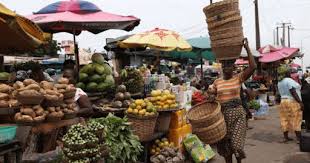Nigeria’s economy in 2025 is facing its hardest stress test in a decade. With Brent crude oil trading around $68 per barrel, well below the $75 benchmark used for budget planning, the government’s fiscal space has tightened dramatically. In response, the International Monetary Fund (IMF) has urged Nigeria to adjust its economic framework, recommending fuel subsidy removal, tighter monetary policy, and broader social support systems. The reforms are in motion, but their immediate impact has been sharply felt by ordinary Nigerians.
The decision to remove petrol subsidies, once politically untouchable, was touted as a fiscal breakthrough. According to official data, the government saved over ₦1.7 trillion in subsidy-related spending between Q3 2023 and Q2 2024. However, for citizens, this macroeconomic success has come with painful microeconomic consequences. The price of a litre of fuel rose from ₦185 to over ₦700 in major cities, triggering a domino effect across every aspect of daily life. A 50kg bag of rice that cost ₦32,000 in early 2023 now sells for over ₦58,000; a bus ride within Lagos that cost ₦200 now averages ₦600 or more.
These surges have hit the middle class especially hard. Professionals who once lived modestly but comfortably are now stretched thin, downgrading schools, skipping medical care, or abandoning plans to buy cars or homes. A 2024 SBM Intelligence survey showed that nearly 47 per cent of urban dwellers earning between ₦150,000 and ₦500,000 monthly had to alter core lifestyle patterns due to transport and food costs. The downward mobility of this demographic not only threatens long-term productivity but also erodes a key pillar of national development.
The fallout also reveals structural gaps in how economic reforms are implemented. While the government did launch a ₦35,000 temporary wage adjustment for civil servants and began conditional cash transfers to select households, coverage remains thin. Many informal workers, estimated at over 80 per cent of the labour force, have been left out entirely. The 3 Million Technical Talent (3MTT) digital training initiative has potential, but its pace and scale are far from enough to counter short-term hardship.
Public response has been deeply sceptical. Though Nigerians are no strangers to economic hardship, what grates now is the dissonance between the government’s rhetoric of progress and the population’s lived experience. “We are saving billions,” officials say. But many ask: where is the evidence? Hospitals remain underfunded, power supply unreliable, and infrastructure progress slow. A recent CDD report found that public trust in economic governance dropped by 23 per cent between 2022 and 2025.
To be fair, Nigeria is not alone. Countries like Ghana and Kenya have also faced mass protests following fuel subsidy removals, and the IMF’s prescriptions are part of a broader push for fiscal discipline across developing economies. Yet Nigeria’s case is uniquely fragile due to a large population, weak institutions, and minimal safety nets, making reforms far riskier if not carefully sequenced.
Experts warn that failure to balance reform with relief could backfire. “There’s nothing wrong with subsidy removal in theory,” notes economist Bismarck Rewane, “but when implemented without cushioning measures, it amplifies suffering and fuels instability.” The IMF itself, in its June 2025 country report, acknowledged the need for “better-targeted support” to protect vulnerable populations during transition periods.
The real question now is: what next? Nigeria cannot roll back necessary reforms, but neither can it continue on a path that alienates the very people meant to benefit from growth. Government spending must become visibly effective, whether through subsidised transport schemes, targeted food distribution, or real-time monitoring of cash transfer impacts. Communication must also change. Economic strategy cannot rely on jargon; it must speak plainly to people struggling with costs they never anticipated.
Reform without legitimacy is a house built on sand. For Nigeria, restoring public confidence is not a PR task; it’s an economic necessity.


